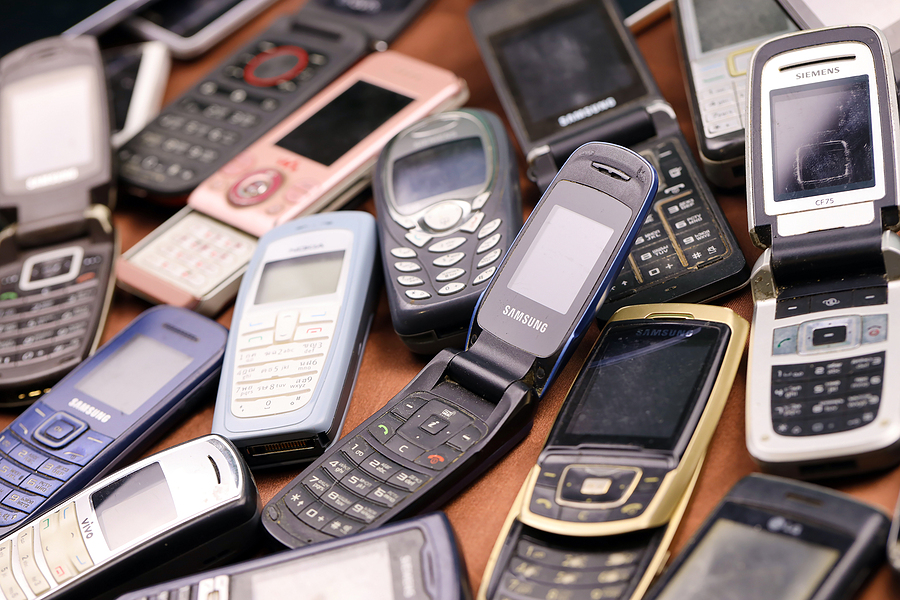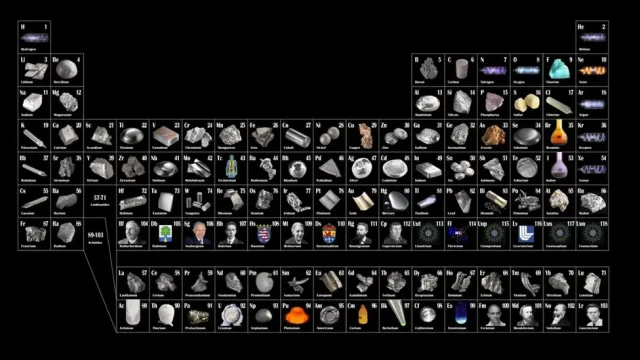
A Growing Issue
According to a report by the international waste electrical and electronic equipment (WEEE), 5.3 billion mobile phones will be thrown away this year. These devices contribute to the global e-waste crisis, which is a major environmental concern.
Research suggests that many people who own outdated phones keep them and don’t seek out recycling options. Consumers reported not having sufficient knowledge on how to properly dispose of electronics and didn’t feel that there were enough recycling facilities available to take these items.

Many naturally occurring elements are found in existing electronics. End-of-life devices could be harvested for usable parts rather than mining for brand new materials. Copper and Cobalt, for example, are found in wires and rechargeable batteries. These could be extracted from scrap electronics and reused to make new technology. “People tend not to realize that all these seemingly insignificant items have a lot of value and together at a global level represent massive volumes,” WEEE director general Pascal Leroy commented.
There are an estimated 16 billion mobile phones worldwide, in Europe alone almost one third are no longer in use. The WEEE reports that by 2030 the amount of electrical and electronic waste generated will increase to 74 million tons per year. This alarming statistic can be attributed to the growing number of devices used for communication and entertainment, as well as machines used to manufacture a wide array of items. Some of these items include washing machines, toasters, tablet computers, and global positioning system (GPS) devices.
RSC Launches a Campaign
This year, the Royal Society of Chemistry launched a campaign promoting the mining of e-waste ‘mountains’ to produce new electronics. Magdalena Charytanowic, from WEEE, states: “These devices offer many important resources that can be used in the production of new electronic devices or other equipment, such as wind turbines, electric car batteries or solar panels – all crucial for the green, digital transition to low-carbon societies.”
Just over 17% of the world’s e-waste is recycled, but the United Nations International Telecommunication Union has set a target to raise that to 30% by next year. It highlights one of the “fastest growing and most complex waste streams that affects both human health and the environment, as it can contain harmful substances”.
One Nonprofit Organization Motivated to Make a Difference
According to Material Focus, a nonprofit organization, a staggering 20 million working electrical items, estimated to be worth $6 billion, are being stored away in UK households right now. The group found that the average British home could make up to $200 from unneeded devices, that were otherwise collecting dust. Material Focus also has an online initiative that offers advice on how to recycle, such as where recycling centers can be located.
General Pascal Leroy, director of WEEE, said more effort could be given when it comes to recycling electronic waste. “Providing collection boxes in supermarkets, pick-up of small broken appliances upon delivery of new ones and offering PO [post-office] boxes to return small e-waste are just some of the initiatives introduced to encourage the return of these items,” he said.
ITAD Provides Solutions
Many of Mr. Leroy’s suggestions are services that an IT asset disposition (ITAD) provider offers. The process of managing outdated and unwanted technology, or ITAD, involves reusing, repairing, repurposing, and disposing of equipment safely while adhering to environmental regulations.
With the fast turnover of IT devices, it is increasingly important to properly manage e-waste. Retired assets contain hazardous materials like heavy metals and chemicals. Posing risk to the environment when not appropriately disposed of. Such contaminants seep into the soil and pollute water sources, affecting the health of humans and wildlife. To ensure secure, responsible disposal of IT assets, ITAD service providers are dedicated to regulated disposition of electronic waste. ITAD services can be utilized by companies and individuals for virtually any type of electronic that needs to be discarded.
